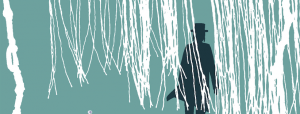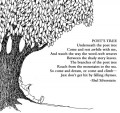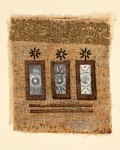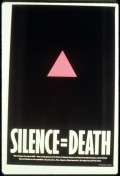Arts and Culture
Euphoria, Curiosity, Exile & the Ongoing Journey of a Hasidic Rebel: A Q & A with Shulem Deen
This week, Graywolf Press is releasing All Who Go Do Not Return by Shulem Deen, the man once known as Hasidic Rebel who went on to become the founder/editor of the website Unpious: Voices on the Hasidic Fringe.
All Who Go Do Not Return is an extraordinary memoir. The writing is beautiful. The journey it chronicles is poignant, relatable — and also unlike anything most readers will ever have experienced. As a young man, Shulem Deen chose to join the Skverers, one of the world’s most intense and insular Hasidic communities. He married, and became a father to five beloved children. And then his natural inclination to learn and to question drove a wedge between him and the Skverer world.
Poet Q, Poet A: Jews Are Funny! Six Poets on Jewish Humor, Poetry & Activism and Survival
In this installment of Rosebud Ben-Oni’s original ZEEK series of poet-poet conversations, poets Erika Meitner, Eduardo Gabrieloff, Hila Ratzabi, Jason Schneiderman and Emily Jaeger talk about their relationship with Jewish humor.
Tackling Hate Speech With Textiles: Robin Atlas in New York for Tu B’Shvat
Lashon hara,” Seattle-based artist Robin Atlas tells me, “is a universal issue that goes way beyond the personal level, even the laws of Judaism. The whole world could be changed for the better if people would be mindful of their speech.”
Working in mixed media, mainly textile art, Atlas elevates lashon hara into the broader context of intolerance, anti-Semitism, xenophobia, racism and discrimination.
Atlas invites viewers to join her in expanding the conversation in her interactive exhibit “Lashon Hara: On the Consequences of Hate Speech,” at the Anne Frank Center in New York. Read More.
Fiction: Angels Out of America
As he leaned on the banister, breathing unevenly, shifting his weight to his forearms, marveling that he had walked sixty blocks, the tree exploded into flames.
Hellish light distorted the faces of the ice skaters and the tourists, carving jack-o-lanterns of them. Jay told himself to keep calm even as a low frightened moan slipped out of him and he knew he could never keep calm; howling fire stripped the word calm of meaning.
When Is an Acceptance Speech Really a Speech About Acceptance?
At the Golden Globes, Jeffrey Tambor thanks the transgender community for “letting us be a part of the change.”
It Begins with Words: In the Studio with Rachel Farbiarz
Rachel Farbiarz is a public intellectual whose medium is visual art. Before devoting her career to art making, she worked as a lawyer focusing on the civil rights of prisoners, particularly those on death row. In this interview, Rachel takes ZEEK readers into the intellectual and physical space of her creative process.
Poet Q, Poet A: Six Poets Talk About Jewish "Authenticity," Identity, Mapping & Archetypes in Their Poetry
This is the second installment of Rosebud Ben-Oni’s series of poet-poet conversations in ZEEK, featuring poets Erika Meitner, Eduardo Gabrieloff, Hila Ratzabi, Jason Schneiderman and Emily Jaeger. Future installments include discussions about whiteness and privilege, humor, and more.
Past & Present, Art & Activism: The Silence=Death Poster
As a founding member of the political collective that produced the image most closely associated with AIDS activism, Silence=Death, I’m frequently asked to speak about this poster. Over the decades people have thanked me for it, telling me the poster was the rallying cry that drew them to political activism.
I have a slightly different take on that. In essence and intention, the political poster is a public thing. It comes to life in the public sphere, and is academic outside of it. Individuals design it, or agencies or governments, but it belongs to those who respond to its call.
Poet Q, Poet A: Six Poets Talk Topography & Landscape in Their Poetry
This is the first installment of Rosebud Ben-Oni’s series of poet-poet conversations in ZEEK about Jewish identity, poetry, and more, featuring poets Erika Meitner, Eduardo Gabrieloff, Hila Ratzabi, Jason Schneiderman and Emily Jaeger. Future installments include discussions about mapping rituals, authenticity, whiteness, and privilege, shifting Jewish identity and humor. We start, here, with this roundtable on location and topography.
Grazing the Object: In the Studio with Rachel Klinghoffer
In this new ZEEK series, Tamara Mann talks to working artists about how Judaism, faith, religious ideas, or even a kind of religious antagonism relates to their studio practice.
Morning Jew: High Holidays & the HinJew Connection with Samhita Mukhopadhyay
Special guest Samhita Mukhopadhyay – former Feministing executive director –- joins Morning Jew comic duo Katie Halper and Heather Gold.
Morning Jew: Genetics, Intermarriage, and Guest “Screaming Latke” Lisa Brown
Special guest author-illustrator Lisa Brown — The Latke Who Couldn’t Stop Screaming and Baby, Make Me a Drink — rejoins Morning Jew comic duo Katie Halper and Heather Gold.
Morning Jew: Brands Behaving Badly, “Shtetl Booty” & More, with Guest Lisa Brown
This week, special guest illustrator-author Lisa Brown joins Morning Jew comic duo Katie Halper and Heather Gold on brands behaving badly, embracing zaftig, and more.
Morning Jew: The Joan Rivers, Ben Stein & Elvis Edition
This week, comics Heather Gold and Katie Halper tackle Ben Stein’s racism, Elvis’ Judaism, and Joan Rivers’ legacy!
A Conversation: Why Fiction Matters in an Unjust World
A conversation between Sarah Seltzer and Chanel Dubofsky launching ZEEK’s Summer Fiction series.
Fiction: Sholem Wrestles an Angel
To a man with hearing loss, the world can present some strange playlists. For instance, the intolerable screech of the BART car on its tracks can approach the sublime. Wind across the brushed aluminum surface of the car can sound like a choir singing a note and its minor third simultaneously, moving up and down a ghostly atonal scale as the car speeds up and slows down. The symphony is released into the atmosphere when the train moves on elevated track, and then strangulated within tunnels where it is forced to ever higher pitches.
Fiction: If You Looked Better, I'd Take You
At school I passed out Tootsie Roll Pops. It was something a normal kid from a normal family would do. I worked hard at that, because at Holy Family nobody knew my dad wasn’t living with us or that he was Jewish.
Fiction: Buying the House Twice
On Sunday mornings there was whitefish and lox and halvah so sweet it hurt your teeth. There were loaves of challah and cheese and slices of purple onion. The dining room seated our family, my aunt Ruth and her family, my aunt Bella, my grandmother, and Ada Rappaport and her boyfriend. Everyone talked at once. Annie took the sliced head of the whitefish and removed it from the scaly body. She pressed her lips against skull and sucked the eyeballs whole.
Fiction: In The End
In the beginning of the End, God saw that what He had created needed uncreating.
![[the current issue of ZEEK]](../../image/2/100/0/5/uploads/leftistethicistgraphic-52842c6a.png)
- 5000 Pages of Zeek
- Founded in 2001, Zeek was the first Jewish online magazine, and we have over 5000 pages online to prove it, all available free of charge. Read more in the Archive.

















